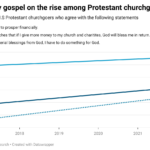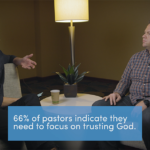
In light of the increase in violence, how should churches small and large respond to the new face in church this week—welcoming or suspicious?
By Luke Holmes
“Gather the people—men, women, dependents, and the resident aliens within your city gates—so that they may listen and learn to fear the Lord your God and be careful to follow all the words of this law.”—Deuteronomy 31:12 CSB
The people of First Baptist Church Sutherland Springs, Texas, gathered on November 5, 2017 as they had for decades. But you probably know that service ended in an unprecedented way.
In a terrible act of evil, a man walked into the church and killed at least 26 people, ranging from infants to elderly. It’s the deadliest mass shooting at a church in history and comes on the heels of a similar incident in Antioch, Tennessee, in late September.
FBC Sutherland Springs looks just like dozens of churches I have been in over the years. The majority of churches in America have fewer than 100 for worship services each week.
When a stranger walks into a church of that size, everyone notices because someone new is there! Anyone who is not a “usual” stands out in a small group.
So in light of the increase in deadly incidents at churches in recent years, how should churches small and large respond to the new face in church this week—welcoming or suspicious?
There are three ways we can respond when we hear this news.
1. We can be foolish
Mass shootings do happen at churches, and this means we must pay attention. Church leaders who think “that could never happen here” are foolishly burying their heads in the sand.
Every church, regardless of size, must think about how to secure the building (and people) during services. It’s a sad fact, but a fact nonetheless, that we must think about these things as churches.
Every leadership team at a church, whether it’s an elder board, a deacon body, or just the regular Wednesday night crowd, must be having discussions about safety.
2. We can be fearful
In light of the shooting, many have urged churches to re-evaluate their security procedures and look out for “suspicious people.”
It’s easy to become fearful in the world we live in, always looking over our shoulders, always wary of every person who walks through the door. But a church that lives in fear will not be able to live out its calling to share the love of Christ.
A fearful church will be afraid that letting in anyone and everyone will put the church at risk. That’s not entirely untrue, of course. The events of the past few years show it might happen in any church.
But to close the church to everyone except those you know is contrary to the gospel. The mission of a church is to be welcoming and open to anyone who walks through the door.
3. We can be faithful
We must be wise about our surroundings, and we can’t bury our heads in the sand. But we must be faithful to what God has called us to do.
Just as Jesus put Himself at risk by coming to earth, so the church must risk itself by going out into the world. The nature of a church is even to put itself at risk, as we love our neighbors as ourselves.
At my own First Baptist Church in Tishomingo, Oklahoma, we’ve had to be intentional about welcoming strangers and overcoming our suspicion.
The church I pastor is the only one on Main Street and near a major highway, so it’s not uncommon to get visitors we might never see again. It even happened yesterday during our morning service. One recent occurrence stands out, however.
One Wednesday night, a large man walked in as we were about to start Bible study. In our small community, we at least seem to know “of” everyone. But this man was a complete stranger.
I noticed some people were shifting uncomfortably and watching him closely as he sat down. He stayed for the lesson in our small group of 20 or so, and afterward we talked.
He said he was passing through looking for work. I gave him some meal money and prayed with him, and he moved on.
When he walked into our service I had no idea why he came, but we did what Christ commands us to do—we welcomed him in the name of the Lord.
This doesn’t make our church special—it makes it normal. This scene or one like it played out in thousands of churches across the country yesterday, and each one was an expression of God’s wisdom in the world.
We must use wisdom and take precautions in our churches. But when strangers come into our churches, we have no option but to welcome them. It’s what God commands of us.
We must not stop there, though. We must love as Christ has loved us and work to share the good news of Jesus with all who will listen—including the stranger.
Related
- Securing the Faithful: How Churches Can Best Prepare for the Worst Tragedies
- 6 Steps to Develop a Church Safety Plan

Luke Holmes
Luke is husband to Sara, father to three young girls, and, since 2011, pastor at First Baptist Church Tishomingo, Oklahoma. He’s a graduate of Midwestern Baptist Theological Seminary and can be found online at LukeAHolmes.com.











